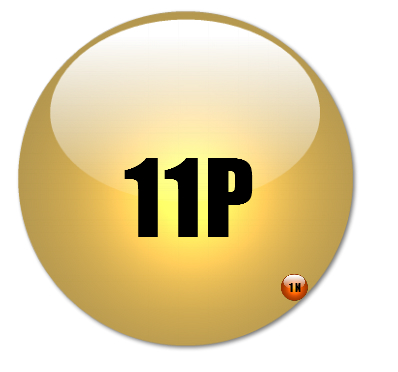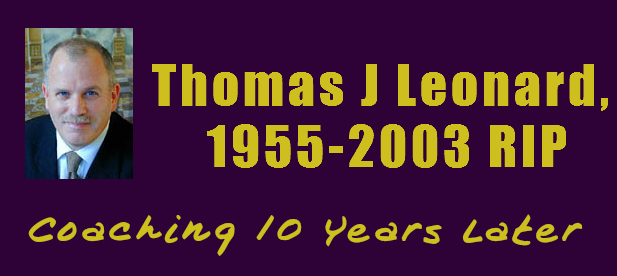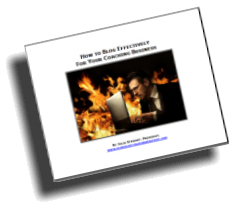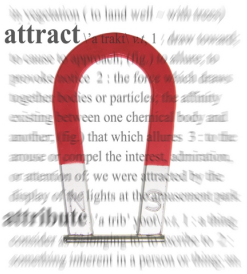
Most coaches are highly positive and that is a wonderful thing.
Positivity helps our clients believe in themselves and their goals. And that's a key to helping them reach those goals. So positivity is one of the keys to masterful coaching. But sometimes coaches, and their clients, misunderstand what positivity really is, when it is most powerful, how to cultivate it, and how to use it well. Like all powerful tools, positivity, when used incorrectly, can cause problems. Big problems!
This is one of the many reasons professional coaches need to be well trained, so they understand the nuances of the powerful tools they use. Otherwise they may backfire.
Positive psychology researcher, Barbara Fredrickson, calls positivity the experience of positive emotions such as gratitude, serenity, love, and more. Experiencing enough of these on a regular basis can be transformative and leads to flourishing by broadening awareness, building our strengths, and helping us become the best versions of ourselves. She makes distinctions about the most useful forms of positivity, such as positivity that is natural vs. artificial, spontaneous vs. insincere, and positivity that's harmonious vs. obsessive. The latter are less useful, but according to Fredrickson, most people can benefit from experiencing more the the former.
Barbara Fredrickson's definition of positivity is what I call Healthy Positivity.
Healthy Positivity may sometimes include intense positive emotions, but more often includes subtle feelings such as open-mindedness, curiosity, empathy, contentment, optimism, generosity, harmony, kindness, compassion, wisdom, perseverance, flexibility, and belief in others (notice that most of these are Character Strengths). Healthy Positivity isn't 100% positive. It's more like 75-90% positive, over time. You can be positive and still have some difficult moments and even some bad days. The point is that you can respond to life instead of trying to control it. And you use your wisdom to help build positive habits that feel good, but ultimately, help you and the people around you enjoy more health, greater success, stronger relationships, and even longer life (according to some researchers).
In contrast, Toxic Positivity tends to be intense, even relentless. The person has an agenda to be 100% positive and wants people around them to be positive too. Toxic Positivity is self-centered, artificial, rigid, can drive others away, is sometimes desperate, and tends to lead to failure.
What is Toxic Positivity like?
- Toxic Positivity has a manic quality to it. It fails to notice genuine concerns or to respond to what is going on. It feels fake to other people and they are less likely to trust it (Imagine an overly friendly or excited salesman who makes you want to run away.) Toxic positivity isn't curious or responsive because the person has already decided how they will be - POSITIVE!!! - no matter the cost. Instead of being open to learning from what's happening, or to notice how others are responding, Toxic Positivity claims everything is GREAT!!!. Example: I had a friend I'll call, Bob*, who was studying the Law of Attraction hoping it would help him build his coaching business. He tried a new marketing campaign and I texted him later to see if he got a good response. He replied, "Nope! Not a one! LOL!" I was glad he wasn't discouraged, but curiosity about what wasn't working and a plan to make it better might have led him to success faster.
- Toxic positivity is judgmental or lacks compassion. It tells others to stop being so negative. It avoids people who are sick or depressed (If being around suffering is harming your mood, do give yourself a break, but you don't have to avoid every friend who is down. Compassion is positive.) Toxic positivity is self-absorbed and others often respond negatively to it. Example: When Bob's city was engulfed in a dangerous weather disaster that knocked out power and internet for thousands, made roads impassible for days, and put countless humans and animals in life threatening situations, I reached out to see if he was okay. His response? "I thought it was fun! LOL!" Wow, Bob, you used to be such a caring person.
- Toxic positivity is selfish and can't see past its own agenda. This is a disservice to others and people feel drained by it. Example: I took a break from Bob's relentless laugh track and explained why to him. Not surprisingly, he didn't understand, possibly because his agenda was in the way. I know he'll come back to himself overtime. Most people do recover from Toxic Positivity. But if you're being positive and it's annoying or offending people, or friends are just drifting away, maybe it's not them. It could be you.
By now, you have a pretty good idea of the difference between Healthy Positivity, which is transformative, and Toxic Positivity, which can be harmful to you and others. Knowing when to apply Fredrickson's positivity is a key. Continuing to be yourself is another. And don't forget, emotions are just information about how life is going for you. Most people, most of the time, don't need to override negative feelings. They need to pay attention to the information they're receiving from those feelings and respond to it. That's a positive approach. But there are times when negativity really doesn't help and even harms. That's when added positivity can make the biggest impact.
Here are three times when increasing your positivity matters most, depending on your current habits:
- THE PAST, if you're a habitual ruminator: someone who mulls over every mistake you've made, every embarrassment, or every perceived slight or criticism from others, every hurt feeling or moment of anger you've experienced, every frustration, etc., you're in danger of making yourself depressed. Shifting your thoughts - toward more positive reframes, such as accepting mistakes or criticisms as opportunities to learn and make better choices, or to design your life so you get to do more of what you're good at and surround yourself with supportive people who believe in you. Caveat: If you're already moderately to severely depressed, positive thinking may not be enough. Do get assistance from a therapist. But cultivating honest positivity is a healthy habit.
- THE PRESENT, if you're a chronic complainer: someone who is never quite satisfied, who is disappointed by less than excellence in every area, who does battle with every moment and maybe even with every other human, you're wearing yourself out and everyone around you. Complainers are drainers. They also can be toxic and literally harm their own health and that of those around them. We all have a negativity bias that makes it easier to notice the bad than the good, and when we are stressed, this tendency gets even stronger. Problem is, the more we focus on what we don't want, the more we get what we don't want. Moreover, people start to avoid us. Don't be a drainer. It takes discipline to start noticing what's going well and appreciate it, but it is well worth the effort. Even if the only positive in your life is that you're breathing, that's kind of awesome considering the alternative!
- THE FUTURE, if you're a constant worrier: you're trying to control the future, which rarely works, and you're using a costly and ineffective tool, to boot. As they say, worry is not a plan. Worse, worry tends to make us anxious and anxiety is one of the most common mental illnesses there is. Again, if you're chronically anxious, let a professional help you, but if you just need an upgrade, try imagining what you want instead of what you don't want. Then ask yourself how you could create it. If you need more resources to get there, start building them. If you're worried something will go wrong, plan how you'll handle it in advance. These tools can help you develop your confidence so fear doesn't get the better of you. Over time, you'll feel better and have better outcomes, too.
I hope these distinctions are useful. If you'd like to work with a coach on Healthy Positivity, find a positive psychology coach here.
If you'd like to get training to become an effective positive psychology coach, explore our program here.
If you just want to learn more about positive psychology coaching, download the FREE eBook here:
* A few details about "Bob" have been changed for this article.



 Positive Psychology
Positive Psychology




 I'm always looking for new ideas that'll upgrade, broaden, or deepen my coaching, so it's more effective. You too? Then you'll love this post.
I'm always looking for new ideas that'll upgrade, broaden, or deepen my coaching, so it's more effective. You too? Then you'll love this post.



 Have you ever wished you could get insider tips on how to succeed at something?
Have you ever wished you could get insider tips on how to succeed at something? 






